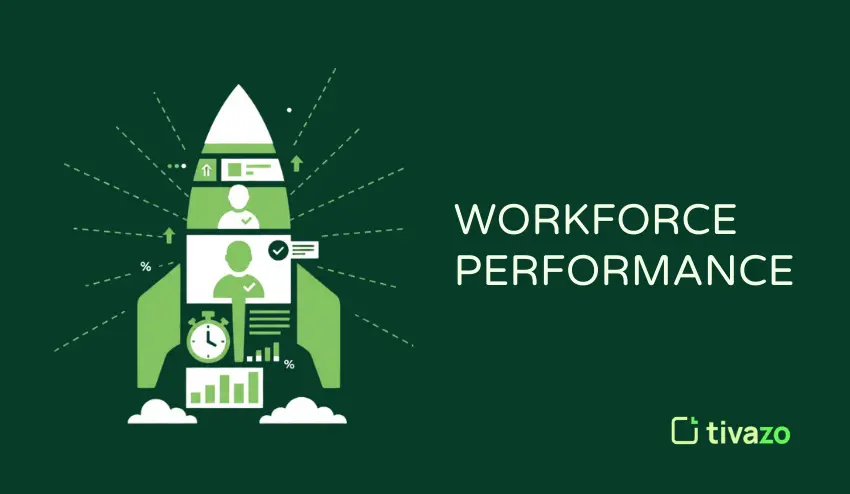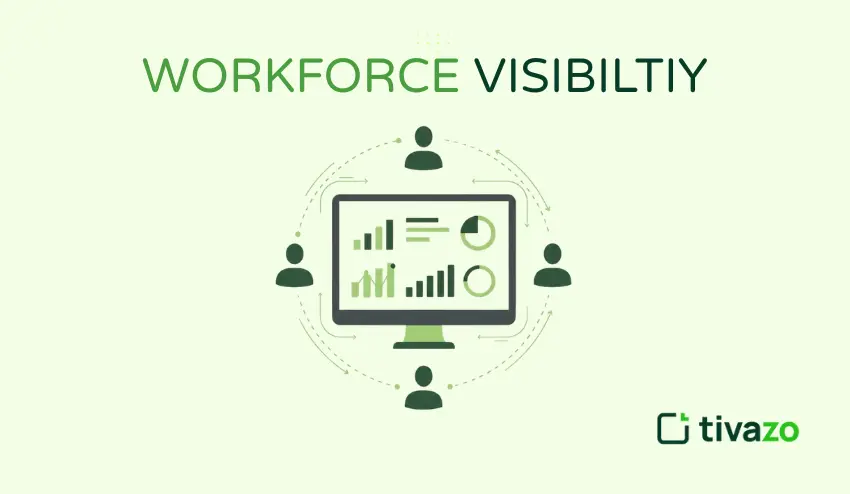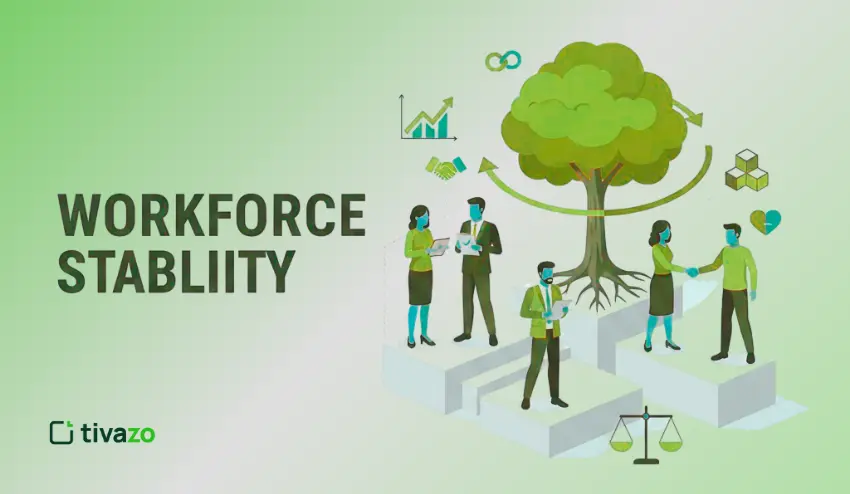Do you always feel like you are being left behind, although you are constantly busy? You may find yourself stuck in the rut of toxic productivity where work never ends, and your success will not be very fulfilling.
To regain the ability to spend time, attention, and mind, it is essential to learn how to recover from the toxic productivity. This is not only a matter of working less but working smarter, drawing boundaries, and reinventing success the way you want it to be.
The first step to healing the toxic productivity is identification of the symptoms: unceasing work, unpaid breaks, and shame about your rest. Learning the strategies to get out of these patterns in practice, you can get the balance, enhance your creativity, and improve your personal and professional life. It can be the adjustment of your schedule, delegation, and self-care, but understanding how to rebound from toxic productivity is the key to success in the long term without burnout.
👉You May Also Like: Productivity Guilt Psychology: Why You Feel Bad for Resting
Key Takeaways:
- What Is Toxic Productivity?
- Warning Signs of Toxic Productivity
- Causes of Toxic Productivity
- The Hidden Costs: Mental and Physical Burnout
- How to Recover from Toxic Productivity
- Building a Healthy Work Culture
- Final Thoughts: Balance Beats Burnout
- FAQs:
What Is Toxic Productivity?
Toxic productivity refers to the unhealthy drive to always stay busy, even when it damages your health, relationships, or peace of mind. Unlike healthy productivity, which helps you stay focused and efficient, toxic productivity thrives on the belief that rest is laziness and that your self-worth depends solely on your output.
Hustle culture promotes putting in long hours, while busyness is heralded as a sign of success. Then, with social media trends pressuring us into sometimes exaggerated ideas of productivity or workplace expectations, it becomes the ideal storm of productivity pressure and something that is very hard to break away from.
People stuck on the merry-go-round of toxic productivity regularly:

- Feel they must always be “doing something productive”
They have difficulty relaxing or enjoying free time, as they think every minute needs to be “used” for work or improvement. - Dismiss emotional exhaustion or mental fatigue
Signifiers like burnout, anxiety, or brain fog are viewed as being weak or just needing to push through. - Have difficulty feeling as though rest is deserved
Even when they give themselves permission to take a break, they experience discomfort or guilt, as if rest needed to be earned. - Confound self-worth with performance
They consider each minute of their day and are unable to separate their value based on what they achieve, as opposed to who they are apart from work.
In summary, toxic productivity is the shadow side of ambition – where working hard turns into working harmfully.
8 Warning Signs of Toxic Productivity

Recognizing the indicators of toxic productivity early can spare you the serious damage to your physical and mental health. This unhealthy drive to constantly be productive can take a toll over time. Here are 8 tell-tale signs you could be stuck in toxic productivity:
1. You Feel Guilty While Resting
Resting and recuperation should be a normal aspect of your everyday life, one would typically consider it a necessary part of your routine. However, if you find yourself feeling guilty or anxious any time you are not productive–on lunch, during weekends, vacations, or at bedtime–then you are experiencing some symptoms of toxic productivity. This guilt makes it hard to settle into rest, and can even lead to emotional exhaustion over time.
Why it’s harmful:
- Rest is imperative for strengthening mental health and overall balance.
- Guilting yourself out of downtime fosters emotional burnout.
- Eventually the guilt can affect your ability to properly recharge, and when working you will be less effective and so on.
2. You Work Long Hours But Achieve Less
The amount of time you spend at work does not equal productivity. People stuck in a toxic productivity loop can work around the clock, gaining little of focus, achieving far less, and in a lot of cases, work not worth finishing.
What this causes:
- Obscure mental fatigue, and brain fog taking away your clarity.
- Inefficiencies in your work, yet you were still there longer.
- Poor management of tasks merging into wasted effort.
3. You Ignore Your Physical and Mental Health
When you focus only on completing tasks, you will also likely ignore all your other basic routines of self-care. Things like skipping meals, insufficitent sleep, and avoiding medical checkups or mental health appointments, indicate overwork is causing more unhealty patterns of behavior.
Health consequences:
- Headaches, insomnia, and overall tiredness affecting your immune system.
- Possibly increasing your chances of anxiety, depression, burnout is tangible.
- Work-life distortion in an unhealthy way is taking over aspects of your personal relationships and happiness.
4. You Cannot Create Boundaries at Work
Getting pulled into work every night, doing everything others ask of you, and struggling to say no to extra work are all signs that your professional boundaries and personal boundaries do not exist, or are too weak. When work/life boundaries are blurred, it is one of the biggest indicators of toxic productivity.
What this leads to:
- Your ability to disconnect from work will be more difficult, and even during your personal time.
- You are now dealing with chronic stress and fatigue from being connected to work 24 hours a day.
- You are too closely identifying with your work roles, and causing harm to your sense of self.
📖Read More: Effects of Working in an Unhealthy Work Environment
5. You Constantly Multitask or Over-Schedule
Multitasking seems like an appropriate way to be more productive and time efficient, and in several ways, it makes it more difficult to complete tasks and create a digital overload by dividing your attention and taking on multiple tasks at once, when you can do one task effectively.
Downsides include:
- Limited attention span and increased greater error.
- Mental fatigue from the effort of switching tasks frequently.
- Opportunities missed, deadlines missed, and a lot of frustration.
6. You Avoid Delegating Even When Overwhelmed
Tasks, Even When You Use Up All Your Time is your mantra “if I don’t do it, no one will” and that’s are all the ways you prefer to think about delegating tasks? This common habit of a negative, perfectionist approach creates a cycle of toxic productivity that leaves you doing more than you can do!
Why this is dangerous:
- There is nothing worse than being stuck on someone else’s check point, that isn’t your bottle neck – and now the work you’ve wasted on someone else’s error or delay.
- You’re creating unrealistic pressure on yourself and others. Now, no one is going to have a smooth day.
- The development of a team is an on-going effort and failure, which means you’re disallowing them to take risks and reward them for undeserving feedback!
7. You Feel Anxious When Not “Busy”
Many people trapped in hustle culture feel anxious or uneasy when they are not engaged in work. If you feel anxious about your downtime, or identify rest with laziness, that is a sign you are under the influence of toxic productivity.
Emotional signs:
- Feeling fidgety, anxious, or distracted while on a break.
- Constantly refreshing or checking work notifications or tools.
- Weakness in accepting that rest is essential to success.
8. You Measure Your Self-Worth with Output, instead of Well-Being
When you base your self-worth and value on how much you accomplish, or how much you achieve at work, you risk losing sense of who you are outside of work. The only thing that should trump work accomplishments in life is personal relationships, and this is part of the chronic productivity mindset we talked about earlier and can lead to long-term mental health difficulties.
Consequences:
- Loss of sense of identity outside of work accomplishments.
- More vulnerability to chronic stress, and burnout.
- Neglecting relationships, personal development, and happiness.
Knowing the above signs of toxic productivity are the first step in freeing yourself from toxic productivity, and in developing a more long-term and healthier view of your work or life.
👉Related: 7 Strategies to Overcome Toxic Workplace Culture
Causes of Toxic Productivity
Toxic productivity does not manifest out of nowhere and it is influenced by various cultural, social, and personal factors.
- Hustle Culture and Peer Pressure
Social media platforms such as LinkedIn and Instagram typically flaunt success highlight reels and push people to keep grinding — losing their health in the process. - Impact of Remote Work
Remote work has been a great opportunity to provide flexibility and choice, however, it also often blurs the lines between work and home. Some employees now feel that they must always be “on.” - Perfectionism and Fear of Failure
A fear of making mistakes and/or not being “enough” can create a productivity trap for individuals. - Limited Workplace Support
Workplaces that praise overwork without support for mental health lend themselves to toxic productivity cultures.
Toxic Productivity in the Workplace
The problem of toxic productivity in the workplace has become more widespread lately as workers strive to meet the unrealistic demands. Toxic productivity may result in burnout, stress, and reduced overall efficiency when teams or individuals focus on output at the expense of well-being. The employees who are caught in the loop are usually forced to work more hours, take no breaks, and even deny themselves a chance to have time, as they think that being always on the go would mean success. Unluckily, this attitude not only damages the chilled mind but also diminishes the innovativeness and involvement, which weaken the long-term objectives of an organization.
The initial step to a healthy work environment is understanding toxic productivity in a work environment. The symptoms are working too much overtime, unwillingness to delegate, and a culture that favors hustling instead of long-term outcomes. Companies that manage toxic productivity through balanced work schedules, mental health promotion, and setting of realistic expectations can achieve better employee satisfaction and performance. Knowing the effects of toxic productivity, both the employer and the employee can create a more sustainable and productive working culture.
The Hidden Costs: Mental and Physical Burnout
Toxic productivity affects more than your calendar — it impacts your life.
Short Term Effects:
- Constant stress
- Loss of good sleep
- Reduced creativity
Long Term Effects:
- Burnout and anxiety disorders
- Emotional exhaustion and disengagement
- Medical problems and lowered immune system
- Unavailability affects personal relationships
The World Health Organization has officially recognized burnout as an occupational phenomenon, not just a popular term.
How to Recover from the Toxic Productivity

Recovery is possible, but it will just take thought and effort. Below are some steps to regain your balance and create healthier habits.
1. Redefine What you Consider Success
Detransfer your self-worth from your output. Success is not just about working. True success is a combination of health, relationships, and peace of mind.
2. Prioritize Rest and Recovery
Integrate real breaks throughout your day, such as:
- Taking lunch breaks without technology
- Aligning boundaries regarding work
- Building buffer times in between tasks
3. Use Your Time Management Strategies Wisely
Techniques like:
- Time-blocking, but not to an obsessive extent
- Using the Pomodoro technique
- Planning your week each week, and cross off any tasks to declutter your schedule
Line up your day without overdoing it. You can “time” set up a report, for example, to only spend time on organizing that part of your business and be mindful of the clock.
4. Set Clear Boundaries
Declutter your life by saying “No.” Set boundaries regarding your work hours, and treat your personal time like it is a client’s appointment that you cannot change.
👉Related: 10 Proven Hacks to Boost Work From Home Productivity
5. Ask for Help and Delegate
Let go of your need to do a perfect job and trust other people; it is a mantra. Delegate effectively, a strength not a weakness.
6. Unplug and Reflect
Unplug for periods of time and have consistent digital detoxes. During weekends and evenings use that time to reflect, recharge and re-ignite your energy.
7. Make a “Not-to-Do” List
Yes, actually. Make a list of things that you habitually do that:
- Drain energy
- Distract you
- Don’t contribute to your goals
This is a good way to schedule mindfully.Expand your glossary
Building a Healthy Work Culture
Developing a workplace that specifically prevents toxic productivity is not only valuable, it is necessary. When organizations glorify overworking or avoid establishing boundaries for their employees, employees are destined for burnout. Admin, HR, and managerial teams will all contribute to an organization’s culture of valuing well-being, balance, and longevity.
So, how might you develop a healthy work environment to protect again toxic productivity?
Cultivate a Healthy Work Environment
A constructive and sustainable work environment starts with policies and values that encourage people to attend to their well-being without shame.
- Celebrate quality over quantity: Without ignoring the hard work aspect for employees – focusing less on how much work someone is able to get done and more on how well they do it. Rewarding quality, purposeful, high-impact work instead of value coming from petty hustle.
- Encourage regular time off: Make it normal – and expected – for people to engage in breaks, take vacation days, and disconnect – guilt-free.
- Deliver resources like mental health support: Access to great counseling, wellness apps, and mental health days, demonstrates that the organization cares about the well-being of their employee beyond “productivity.”
Train Managers to Recognize Burnout
The first source of uncontrolled productivity is unmanaged burnout. Managers must be able to recognize the signs of burnout in employees and are able to step in with empathy and support.
- Recognize the indicators of emotional exhaustion: Train managers to recognize the signs when people have become disengaged, become irritable, or have become overtired – all signals of burnout that lurk just below the surface.
- Allow leeway for personal lives: Support flexibility in hours of work. Allow for remote work. Allow for reduced workload during periods of high need. Flexibility can be a great remedy for uncontrolled productivity.
Use Tools for Balance
Digital tools, when used intentionally, can support productivity without overly burdening the team.
- Monitor workload with Tivazo: Time tracking resources can reveal patterns of overwork, and enable teams to examine workload before burnout takes hold.
- Encourage async communication: Rather than expecting instant communication, promote async communication among teams whenever possible. When teams communicate asynchronously, there is no need for everyone to engage in live contact at the same time. Instant communication serves only to ramp up pressure to a new level, and can obliterate healthy patterns of productivity and establish a deeper sense of balance.
In conclusion, organizations can improve the employee experience while increasing retention, engagement, and performance, by intentionally cultivating a work culture that questions uncontrolled productivity. Productive cultures are healthy, but not when it is at the expense of the citizens creating them.
Conclusion
In a society where we feel pressure to always “do more,” it isn’t just smart to opt for balance, it’s a radical act of self-care. Toxic productivity can appear to be ambition, but underneath it is a secret danger for your creativity, peace of mind, and long-term health. It isn’t an achievement — it’s a warning sign telling you something needs to change.
By recognizing the warning signs of toxic productivity, reclaiming your time, and creating the boundaries between your work life and home life, you can avoid the trap of burnout. You can enjoy success without compromising your mental health.
You should always remember: you are not based on your productivity. You are based on your presence, peace of mind, and ability to live a life that feels real — that is not just busy.




